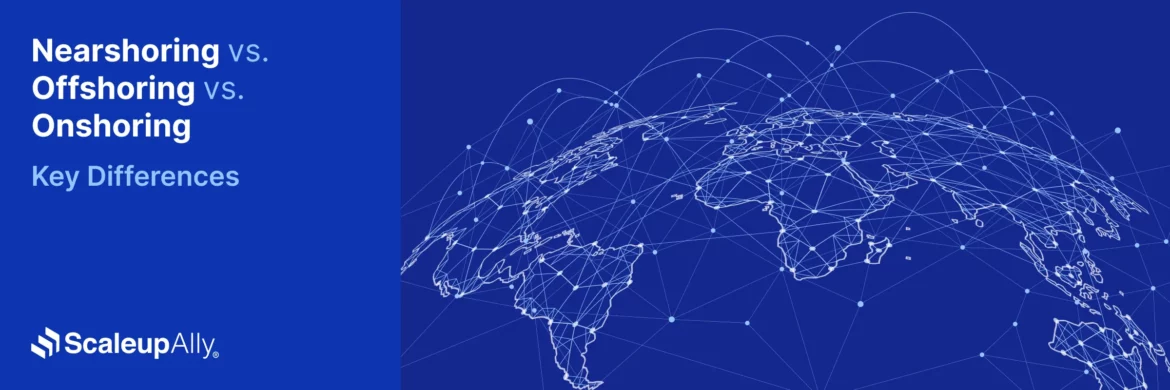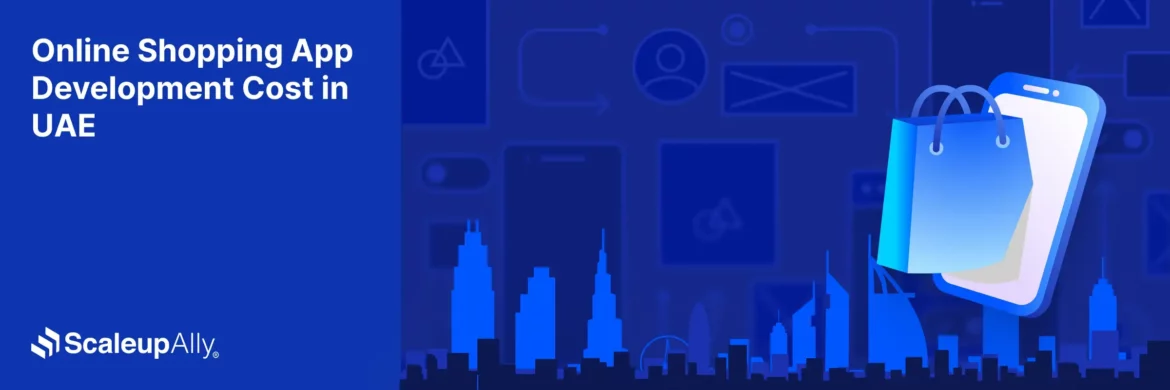
Risks of outsourcing app development to India: Is it safe?
Suprabhat Sen | December 6, 2023 , 11 min read
Table Of Content
Selecting India as the destination for outsourcing app development has gained popularity owing to its cost-effectiveness and access to an extensive talent reservoir. India’s dominance in IT outsourcing is unquestionable, boasting varied services and adept professionals. Yet, outsourcing carries inherent risks necessitating meticulous scrutiny. This piece delves into the possible setbacks when delegating mobile app development to India, presenting perspectives on how to mitigate these risks.
Dive into the nuances of this choice to guarantee a fruitful outsourcing endeavour while manoeuvring through the potential challenges that might surface along the way.
Also Read: 10 Benefits of Outsourcing Mobile App Development to India
Risks of outsourcing mobile app development to India
1. Communication Challenges
One of the main concerns when outsourcing app development to India is the potential for communication challenges. English proficiency in India is generally good, with the country being one of the largest English-speaking nations in the world. However, differences in communication styles, cultural nuances, and time zone differences can still pose challenges. Miscommunication and misunderstandings can lead to delays, errors, and a breakdown in the development process.
To mitigate communication challenges, it is important to establish clear channels of communication and set expectations from the beginning. Regular video conferences, project management tools, and written documentation can help ensure effective communication and minimize the risk of miscommunication.
2. Quality Control
Ensuring high-quality app development can be a concern when outsourcing to any country, including India. While India has a large pool of talented app developers, the quality of work can vary. It is essential to thoroughly vet potential outsourcing partners, review their portfolio, and check client testimonials to assess their expertise and track record.
To mitigate the risk of poor quality control, consider partnering with a reputable outsourcing company that has a proven track record of delivering high-quality app development projects. Look for certifications, such as ISO standards or CMMi, which indicate a commitment to quality and best practices.
3. Data Security and Intellectual Property Protection
Data security and intellectual property protection are major concerns when outsourcing app development to India. Sharing sensitive information with a third-party vendor carries inherent risks. It is crucial to ensure that the outsourcing partner has robust security measures in place to protect your data and intellectual property.
Before entering into an outsourcing agreement, thoroughly evaluate the vendor’s security protocols, including encryption methods, access controls, and data backup procedures. Non-disclosure agreements (NDAs) and intellectual property protection clauses should be included in the contract to safeguard your proprietary information.
4. Legal and Regulatory Compliance
Navigating legal and regulatory compliance can be challenging when outsourcing app development to a different country. Different jurisdictions have different laws and regulations, and it is important to ensure that your outsourcing partner complies with relevant laws, such as data privacy regulations.
To mitigate legal and regulatory risks, work with outsourcing partners who have a strong understanding of international laws and regulations. Conduct due diligence to ensure that the vendor has a solid legal framework in place and is compliant with applicable regulations.
5. Cultural and Time Zone Differences
Cultural and time zone differences can impact the outsourcing process, particularly when it comes to project management and collaboration. Different work styles, holidays, and business practices can lead to misunderstandings and delays.
To overcome cultural and time zone differences, establish clear communication channels, set expectations for working hours and response times, and foster a collaborative environment. Regularly scheduled meetings and effective project management tools can help bridge the gap and ensure smooth collaboration.
6. Vendor Reliability and Stability
The reliability and stability of the outsourcing vendor are crucial factors to consider when outsourcing app development to India. The vendor’s financial stability, track record, and longevity in the industry can provide insights into their reliability.
To mitigate the risk of working with an unreliable vendor, thoroughly research potential outsourcing partners. Look for established companies with a strong reputation and a track record of successful projects. Request client references and testimonials to gain a better understanding of their reliability and stability.
7. Project Management and Accountability
Effective project management and accountability are essential for successful app development. When outsourcing to India, it is important to ensure that the outsourcing partner has a robust project management process in place and can provide regular updates on the progress of the project.
To mitigate project management risks, establish clear project milestones, deliverables, and timelines. Regularly review progress, conduct quality checks, and maintain open lines of communication to ensure accountability and alignment with your project goals.
8. Economic and Political Stability
Economic and political stability can impact the outsourcing landscape in any country. Changes in government policies, economic downturns, or social unrest can disrupt business operations and impact the stability of outsourcing partners.
To mitigate the risk of economic and political instability, work with outsourcing partners who have a strong track record of operating in challenging environments. Seek partners who have weathered economic and political changes and have demonstrated resilience and adaptability.
9. Hidden Costs and Budget Overruns
Budget considerations are often a driving factor in outsourcing decisions. However, hidden costs and budget overruns can pose risks when outsourcing app development to India. Factors such as scope creep, additional development requirements, and inefficient project management can lead to unexpected costs.
To mitigate the risk of hidden costs and budget overruns, establish a clear scope of work and project requirements from the start. Ensure that there is a well-defined contract outlining the scope, deliverables, and payment terms. Regularly review project progress and budget to identify any potential issues early on.
10. Lack of Post-Development Support
Post-development support is crucial for the long-term success of an app. When outsourcing to India, there may be concerns about the availability and quality of post-development support. The risk of inadequate support or a lack of ongoing maintenance can impact the overall performance and user experience of the app.
To mitigate the risk of inadequate post-development support, discuss and agree upon post-development support requirements with the outsourcing partner before agreeing. Ensure that the vendor has a dedicated support team and a clear process for addressing any issues that may arise after the app is launched.
11. Language and Cultural Compatibility
Language and cultural compatibility can impact the effectiveness of communication and collaboration when outsourcing app development to India. Differences in language, work culture, and business practices can lead to misunderstandings and hinder project progress.
To mitigate language and cultural compatibility risks, choose an outsourcing partner who has experience working with international clients and understands the nuances of cross-cultural communication. Effective communication tools, such as video conferencing and project management platforms, can also bridge the gap and foster better collaboration.
12. Lack of Control and Flexibility
Outsourcing app development to India means relinquishing some control over the development process. This lack of control and flexibility can be a risk for businesses that prefer to have direct oversight and the ability to make quick changes or adjustments.
To mitigate the risk of lack of control and flexibility, establish clear project requirements and expectations from the beginning. Regularly review progress and maintain open lines of communication to ensure that the development process aligns with your vision and allows for necessary adjustments.
Also read: How to outsource mobile app development to India?
How to Mitigate these Risks?
While there are risks involved in outsourcing mobile app development to India, these risks can be mitigated with careful planning and due diligence. Here are some key steps to help mitigate these risks:
- Thoroughly vet potential outsourcing partners: Review portfolios, check client testimonials, and assess the expertise and track record of potential outsourcing partners.
- Establish clear communication channels: Regularly communicate and set expectations with the outsourcing partner to ensure effective communication and minimize misunderstandings.
- Ensure data security and intellectual property protection: Evaluate the vendor’s security protocols and include non-disclosure agreements and intellectual property protection clauses in the contract.
- Understand legal and regulatory compliance: Ensure that the outsourcing partner complies with relevant laws and regulations, and include legal frameworks in the contract.
- Foster a collaborative environment: Establish regular meetings, effective project management tools, and clear project milestones to bridge cultural and time zone differences.
- Work with reliable and stable vendors: Research potential outsourcing partners, seek references and testimonials, and choose established companies with a strong reputation.
- Define project milestones and deliverables: Clearly outline project requirements, deliverables, and timelines to ensure accountability and alignment with project goals.
- Monitor budget and progress: Regularly review project progress and budget to identify potential issues early on and address them proactively.
- Discuss post-development support requirements: Agree upon post-development support expectations and ensure that the outsourcing partner has a dedicated support team in place.
- Foster language and cultural compatibility: Choose an outsourcing partner with experience working with international clients and utilize effective communication tools to bridge language and cultural gaps.
- Maintain some level of control and flexibility: Communicate project requirements and expectations, and maintain open lines of communication to make necessary adjustments throughout the development process.
How Scaleupally can help you avoid these risks?
At Scaleupally, we understand the risks involved in outsourcing mobile app development to India. We strive to mitigate these risks by providing a reliable and transparent outsourcing experience. Here’s how we can help you avoid these risks:
- Vetting Process: We have a rigorous vetting process to ensure that we partner with the best app developers in India. We carefully review portfolios, conduct technical interviews, and assess the expertise and track record of our developers.
- Communication and Project Management: We prioritize effective communication and project management to minimize misunderstandings and delays. Our project managers ensure regular updates, clear communication channels, and alignment with your project goals.
- Data Security and Intellectual Property Protection: We have robust security measures in place to protect your data and intellectual property. Our developers are bound by strict non-disclosure agreements, and we follow industry best practices for data security.
- Legal and Regulatory Compliance: We have a strong understanding of international laws and regulations and ensure compliance with relevant legal frameworks. We provide transparency and guidance on legal and regulatory requirements.
- Quality Assurance: We have a dedicated quality assurance team that conducts thorough testing and ensures high-quality app development. We follow industry best practices and adhere to global quality standards.
- Post-Development Support: We provide comprehensive post-development support to ensure the long-term success of your app. Our support team is available to address any issues and provide ongoing maintenance and updates.
- Transparency and Accountability: We believe in transparency and accountability throughout the development process. We provide regular progress updates, maintain open lines of communication, and prioritize your project goals.
Conclusion
Outsourcing mobile app development to India offers numerous benefits, including cost savings and access to a large talent pool. However, it is essential to be aware of the risks involved and take steps to mitigate them. By carefully vetting outsourcing partners, establishing clear communication channels, ensuring data security and intellectual property protection, and fostering a collaborative environment, you can successfully navigate the risks of outsourcing app development to India.
At Scaleupally, we are committed to providing a reliable and transparent outsourcing experience as a trusted mobile app development company, helping you mitigate these risks and achieve your app development goals. If you have an app idea to discuss, contact us now!
Related Blogs

Nearshoring vs. Offshoring vs. Onshoring: Key Differences
Discover the key differences between nearshoring, offshoring, and onshoring. Learn the benefits, challenges, and how to choose the best outsourcing strategy for your business.
webadmin
Feb 13 ,
6 min read

Top 20 Emerging Technologies of 2026
Discover the top 20 emerging technologies of 2026. Explore which innovations are driving change across healthcare, finance, manufacturing, and other crucial industries.
ScaleupAlly Team
Dec 16 ,
9 min read

Online Shopping App Development Cost in UAE | Pricing & Factors Explained
Understand UAE online shopping app development costs in 2025 with pricing ranges, influencing factors, hidden fees, timeframes, and expert savings tips.
Suprabhat Sen
Nov 29 ,
13 min read



